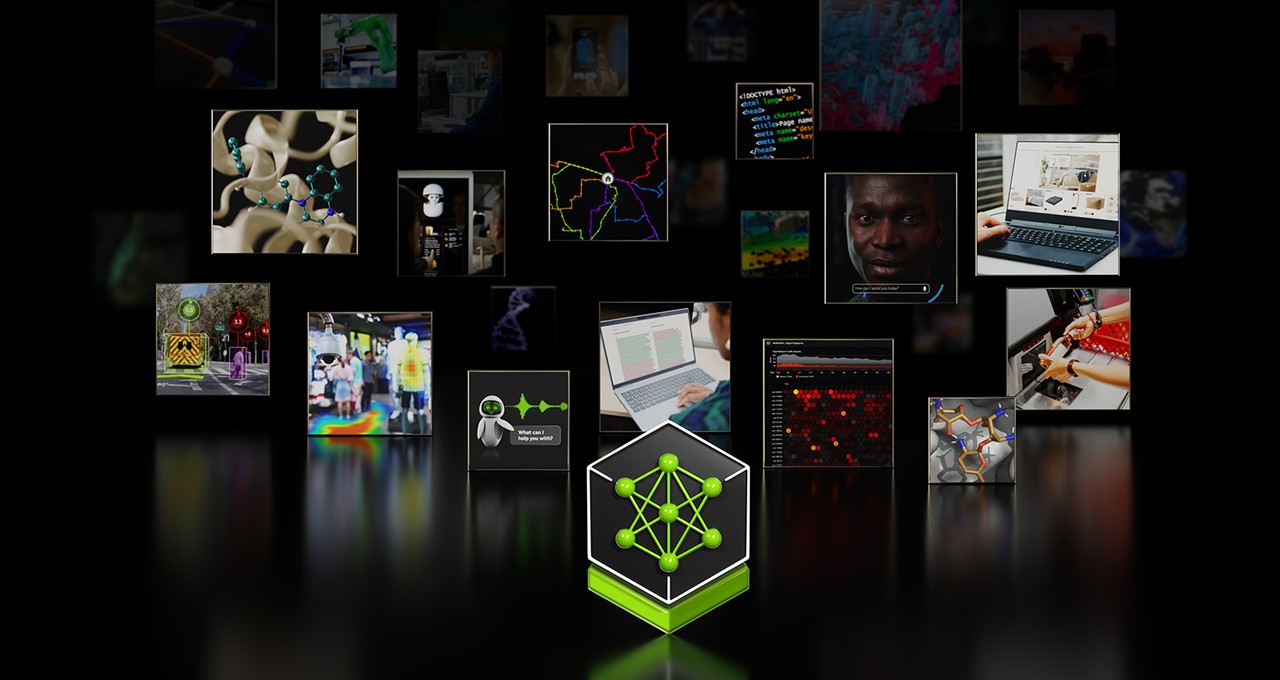Artificial Intelligence (AI) is undergoing a transformative phase, revolutionizing the way organizations address complex challenges. Initially, enterprises began their AI journey by deploying large language models to develop chatbots. However, the narrative has evolved significantly with the integration of agentic AI. This advanced form of AI enables the creation of intelligent systems capable of reasoning, acting, and executing complex tasks with a certain level of autonomy. This progression marks a significant shift from merely reactive AI tools to proactive, decision-making entities.
Jacob Liberman, the director of product management at NVIDIA, shared his insights on the NVIDIA AI Podcast, shedding light on how agentic AI is bridging the divide between powerful AI models and their practical applications in enterprises. The emergence of AI agents in the workplace is liberating human workers from monotonous, time-intensive tasks, thereby allowing them to focus on high-value work that demands creativity and strategic prowess.
Liberman foresees a future where teams comprising both AI agents and human workers collaborate seamlessly to tackle intricate tasks that require reasoning, intuition, and judgment. For instance, enterprise software developers will harness the capabilities of AI agents to craft more efficient algorithms, while medical researchers will partner with AI agents in the design and testing of new drugs.
NVIDIA facilitates this transition through its AI Blueprints, which assist enterprises in developing their AI agents for various use cases. According to Liberman, "Blueprints are reference architectures implemented in code that show you how to take NVIDIA software and apply it to some productive task in an enterprise to solve a real business problem." These blueprints are entirely open source, offering developers and service providers the flexibility to deploy them as they are or customize them by integrating their proprietary technology.
A notable example of the versatility of these AI Blueprints is the one designed for customer service, featuring digital humans. This blueprint can be adapted to create a digital nurse, a sportscaster, or a bank teller, illustrating the blueprint’s adaptability to different verticals. Other popular NVIDIA Blueprints include a video search and summarization agent, an enterprise multimodal PDF chatbot, and a generative virtual screening pipeline for drug discovery.
Understanding AI Agents
At the core of this discussion is the concept of an AI agent. An AI agent is a type of software application that autonomously performs tasks on behalf of a user or another program, making decisions and executing actions based on pre-defined rules and real-time data. These agents are increasingly becoming integral to industries like cybersecurity and risk management, where they play crucial roles in monitoring and mitigating potential threats.
Early Adopters of Agentic AI
Software developers are often the early adopters of emerging technologies, and agentic AI is no exception. By integrating AI agents into their workflows, developers can automate routine coding tasks, optimize algorithms, and enhance software development processes, ultimately leading to more innovative and efficient solutions.
Test-Time Compute and Reasoning Models
Another point of interest in the AI discussion is the concept of test-time compute, which refers to the computational processes that occur when an AI model is deployed in real-world scenarios. This involves reasoning models that enable AI systems to make informed decisions and adapt to dynamic environments, a critical capability for tasks requiring real-time analysis and response.
AI in Cybersecurity and Risk Management
The application of AI agents extends to fields such as cybersecurity and risk management, where they are employed to detect and respond to threats in real time. By analyzing vast amounts of data, these agents can identify patterns indicative of potential security breaches, thereby enhancing the organization’s ability to protect sensitive information and maintain operational integrity.
The Rise of Personal AI Agents
In a related podcast episode, Kanjun Qiu, CEO of Imbue, discusses the emergence of personal AI agents. Drawing parallels to the personal computer revolution, Qiu explains how modern AI systems are being designed to collaborate with users, enhancing their capabilities and enabling a more personalized technological experience.
Norway’s First AI Factory
Kaaren Hilsen, chief innovation officer and head of the AI factory at Telenor, elaborates on the launch of Norway’s first AI factory. This facility processes sensitive data securely within the country, promoting data sovereignty and environmental sustainability. The initiative also includes a renewable energy-powered data center in Oslo, underscoring the commitment to green computing practices.
AI Agents in Retail
Jon Heller of Firsthand shares insights on how AI agents are transforming consumer journeys in the retail sector. By personalizing customer interactions and converting marketing engagements into valuable research data, AI Brand Agents are enhancing digital marketing strategies, driving sales, and improving customer satisfaction.
As AI continues to evolve, its applications across various sectors are expanding rapidly, offering unprecedented opportunities for innovation and efficiency. Enterprises that embrace agentic AI are likely to gain a competitive edge, positioning themselves at the forefront of this technological revolution. For more detailed information, you can explore the original NVIDIA AI Podcast.
For more Information, Refer to this article.


































![Good Lock Features: Discover the Top Favorites [Exploring Good Lock ②] Unveiling the Most Popular Good Lock Features](https://www.hawkdive.com/media/samsung-mobile-good-lock-home-up-3-most-popular-features_thumb728-218x150.gif)